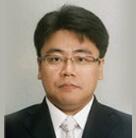Invited Speaker

Yutaka Fukuchi
Associate Professor, Tokyo University of Science, JapanSpeech Title: Stable, wavelength-tunable and amplitude-equalized rational harmonic mode-locked laser employing a short bismuth-oxide-based highly nonlinear erbium-doped fiber
Abstract: Harmonically mode-locked fiber lasers (HMLFLs) have proven to be able to generate wavelength-tunable short pulses with small timing jitter and gigahertz repetition rates. Generally, the repetition rate of the HMLFLs given by nfcav is equal to the modulation frequency fmod of the intra-cavity modulator, where n is an integer called harmonic order, and fcav is the fundamental cavity frequency. Therefore, the maximum repetition rate is normally limited by the modulator bandwidth. Recently, a technique called rational harmonic mode locking has attracted considerable interest. In this technique, a pulse train with a repetition rate of (pn+1)fcav can be generated when fmod is set at (n+1/p)fcav, where p is an integer called rational harmonic order. However, the pulse amplitude becomes uneven when p is greater than two. Uneven amplitudes create difficulties in the real application. The wavelength tuning range is also another important issue of the HMLFLs. Furthermore, typical cavity length is 10-100 m, and n is 500-5000 for 10-GHz mode locking, which results in instability owing to the external perturbation and the large supermode noise. In this presentation, we review a rational HMLFL employing a short bismuth-oxide-based highly nonlinear erbium-doped fiber (Bi-HNL-EDF). Ultra-wide wavelength tunability covering both the C- and L-bands is achieved by utilizing a broadband gain profile of the Bi-HNL-EDF. The supermode noise is suppressed effectively due to a high nonlinearity of the Bi-HNL-EDF. The pulse-amplitude equalization is also achieved by a modulator transmittance adjustment method. The fiber cavity is as short as 6 m. Thus, stable and amplitude-equalized near-TL short pulses up to 40 GHz (p = 4) are successfully observed over the entire wavelength tuning range.
Keywords: Optical fiber lasers, mode-locked lasers, rare-earth materials, nonlinear optics, wavelength tuning, noise
Biography: Yutaka Fukuchi was born in Tochigi, Japan, on April 29, 1975. He received the B.S. and M.S. degrees in electronics engineering from Tokyo University of Science, Chiba, Japan, in 1998 and 2000, respectively, and the Ph.D. degree in electronics engineering from the University of Tokyo, Tokyo, Japan, in 2003.
In 2003, he joined the Department of Electrical Engineering, Faculty of Engineering, Tokyo University of Science, Tokyo, Japan as an Assistant Professor. From 2003 to 2005, he was also a Co-operative Research Fellow in Research Center for Advanced Science and Technology, the University of Tokyo, Tokyo, Japan. Then, he became a Junior Associate Professor of Tokyo University of Science in 2006. Since 2009, he has been an Associate Professor at this university. From 2013 to 2014, he was a Visiting Research Fellow with the High-Speed Optical Communications Group, Department of Photonics Engineering, Technical University of Denmark, Lyngby, Denmark. His research interests are optical communications, quantum optics, nonlinear optics, and their applications.
Dr. Fukuchi is a member of the Institute of Electrical and Electronics Engineers (IEEE), the Optical Society of America (OSA), and the Institute of Electronics, Information, and Communication Engineers (IEICE).
